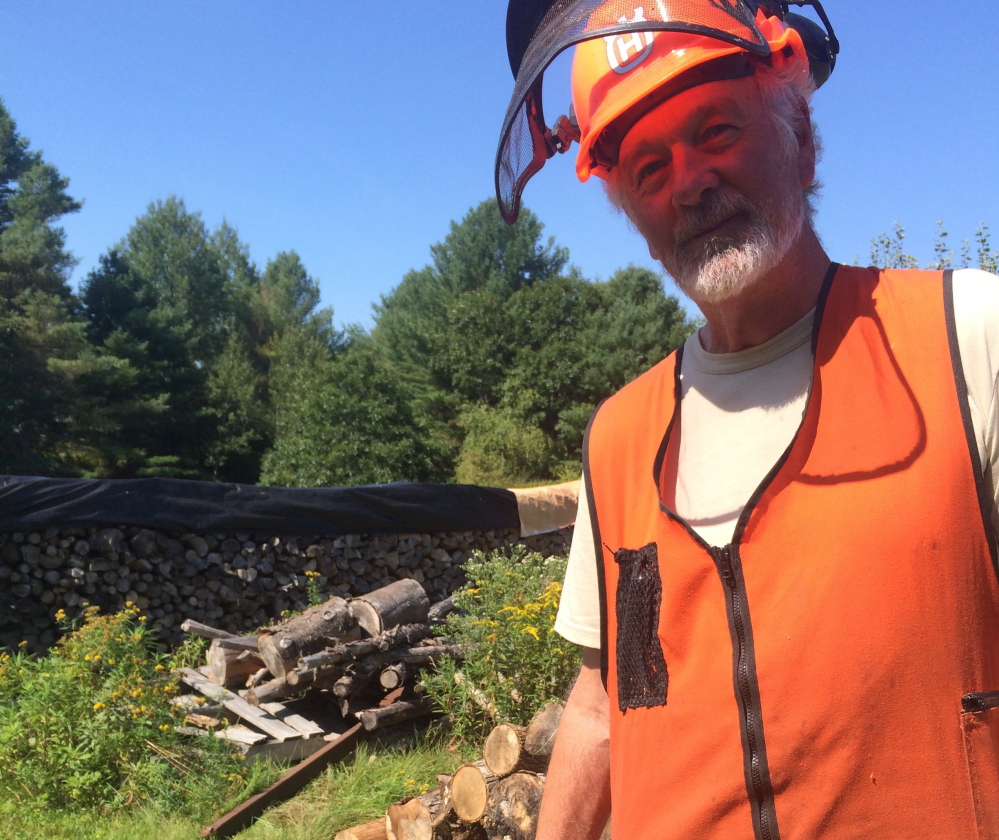TOPSHAM — John Cullen logged his land for 20 years before realizing he was doing it wrong.
A demonstration at the Common Ground Fair in 1998 shed light on the path to better logging. Several years later, Cullen started teaching classes around the state for the Jackman-based Certified Logging Professionals.
But then, Cullen, 63, had pretty good experience as a coach. Before he retired in 2007 at 55, he spent the better part of his career as the women’s soccer coach at Bowdoin College, where he led 17 players to Division III All-American status and guided the Polar Bears to NCAA tournament bids every year from 1995 to 2000. In his 20 years as head coach, Cullen amassed a 220-77-20 record.
So when a chainsaw instructor at the Maine Organic Farmers and Gardeners Association encouraged him to teach the discipline, it seemed only natural that Cullen would help show others how to log their land, a pastime he loves.
How did you get into logging?
We moved to Maine in 1978 and bought this farm in 1979, and like everyone else I looked to take wood off my land. For a good 20 years, I didn’t know what I was doing. Then I went to a demonstration at the Common Ground Fair, and a logger who is now a friend did a felling demonstration. I thought, that’s what I want to do and I have no idea how to do that. I went to a Certified Logging Professional class in 2002. Then I volunteered in the low-impact forestry class at MOFGA. One of the CLP instructors asked me to take half of the class, and I did that a year or two, then he said, why don’t you become a CLP instructor? I became a CLP instructor in 2007 and now help teach every year at the MOFGA class. I think it’s now my 17th year being involved in the low-impact forestry class.
Is there more interest?
I would say yes on the homeowners level. A lot want to learn how to cut wood to heat their homes. There are new farmers looking to work in the woods the three months they are not dirt farming. And more land trusts want to train land stewards.
Over the course of time, I’ve also seen more women using chainsaws and more entry-level people. In a way, it’s much easier to teach them because they haven’t picked up bad habits.
Why do people take your class?
For anything and everything from someone who farms 10 acres to someone who bought a woodlot they want to use to heat their home; others get wood delivered and they want to know how to cut and split and dry their wood. Between the CLP class and the MOFGA demonstrations and other classes, like one at the University of Maine, I teach between 50 and 60 a year. A lot tell me it’s more than they thought logging required. It takes a new person about a half-hour to cut down a tree, with me asking questions. When you get good at it, you can drop a tree in a minute. You need to ask each time: What are the hazards? How is it leaning? Where is my escape route? Where will the hinge be? What is my cutting plan?
What’s the danger in doing it wrong?
It’s very, very dangerous, the process to get a tree from vertical to horizontal. We like to instill attention to detail on each cut. If you do it wrong you’re in grave danger of cutting yourself. And when injuries occur the chainsaw cuts a quarter-inch wide by however deep it goes. There’s the danger of a tree or branch falling on you. Then there’s a simple question of efficiency. Done right, you can cut five cords of wood in two weekends rather than three.
What do people need to wear, and what’s the investment?
We tell them to use chaps, steel-toe boots, a helmet, eye and ear protection. A professional chainsaw costs between $600 and $800, but a homeowner can get a good one for $300. So the total cost for the gear is around $550. The chaps are made of ballistic Kevlar. It stops the chain by jamming the saw in the fabric. The mask stops wood chips from flying up in your face.
What’s the most important thing you want people to know about logging?
If they’re not felling a tree using what’s called “the bore cut” (a more modern approach than the traditional cut), then they need instruction. If they want to take a class they can contact either the Certified Logging Professionals (at clploggers.com) or MOFGA (mofga.org).
Send questions/comments to the editors.




Success. Please wait for the page to reload. If the page does not reload within 5 seconds, please refresh the page.
Enter your email and password to access comments.
Hi, to comment on stories you must . This profile is in addition to your subscription and website login.
Already have a commenting profile? .
Invalid username/password.
Please check your email to confirm and complete your registration.
Only subscribers are eligible to post comments. Please subscribe or login first for digital access. Here’s why.
Use the form below to reset your password. When you've submitted your account email, we will send an email with a reset code.